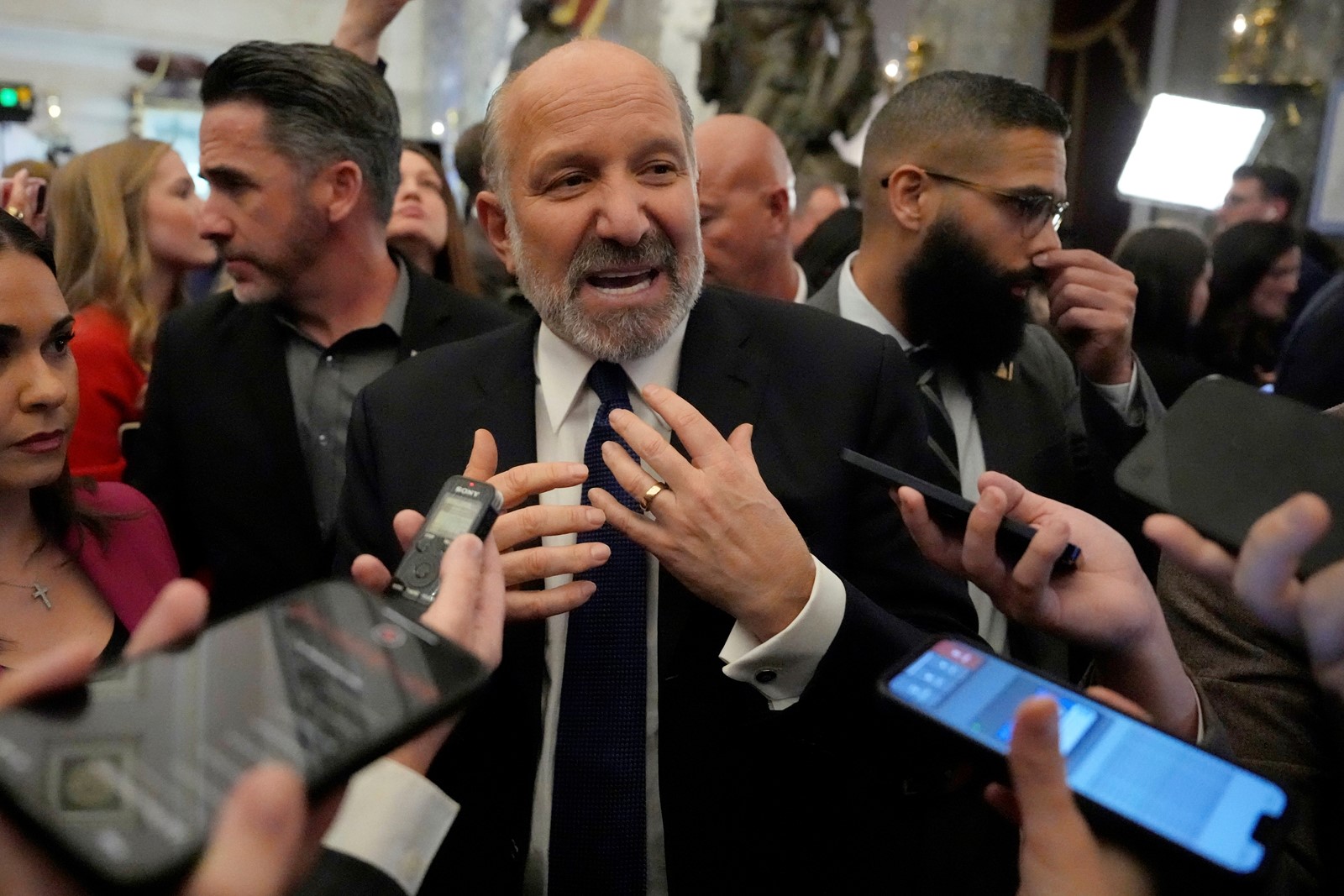
President Donald Trump on Thursday postponed 25% tariffs on many imports from Mexico and some imports from Canada for a month amid widespread fears of the economic fallout from a broader trade war.
The White House insists its tariffs are about stopping the smuggling of fentanyl, but the taxes proposed by Trump have caused a gaping wound in the decades-old North American trade partnership, and Canada has felt compelled to quickly take aggressive countermeasures. Trump’s tariff plans have also caused the stock market to sink and alarmed U.S. consumers.
In addition to his claims about fentanyl, Trump has insisted that the tariffs could be resolved by fixing the trade deficit and he emphasized while speaking in the Oval Office that he still plans to impose “reciprocal” tariffs starting on April 2.
“Most of the tariffs go on April the second,” Trump said before signing the orders. “Right now, we have some temporary ones and small ones, relatively small, although it’s a lot of money having to do with Mexico and Canada.”
Trump said he was not looking to extend the exemption on the 25% tariff for autos for another month.
Imports from Mexico that comply with the 2020 USMCA trade pact would be excluded from the 25% tariffs for a month, according to the orders signed by Trump. Auto-related imports from Canada that comply with the trade deal would also avoid the 25% tariffs for a month, while the potash that U.S. farmers import from Canada would be tariffed at 10%, the same rate at which Trump wants to tariff Canadian energy products.
Roughly 62% of imports from Canada would likely still face the new tariffs because they’re not USMCA compliant, according to a White House official who insisted on anonymity to preview the orders on a call with reporters. Half of imports from Mexico that are not USCMA compliant would also be taxed under the orders being signed by Trump, the official said.
Mexico President Claudia Sheinbaum has planned to announce any retaliatory measures on Sunday, but Trump credited her with making progress on illegal immigration and drug smuggling as a reason for again pausing tariffs that were initially supposed to go into full effect in February.
“I did this as an accommodation, and out of respect for, President Sheinbaum,” Trump said on Truth Social. “Our relationship has been a very good one, and we are working hard, together, on the Border.”
Sheinbaum said she and Trump “had an excellent and respectful call in which we agreed that our work and collaboration have yielded unprecedented results,” on a post on the social media platform X, formerly Twitter.
Ontario Premier Doug Ford, the leader of Canada’s most populous province, said that starting Monday the province will charge 25% more for electricity shipped to 1.5 million Americans in response to Trump’s tariff plan. Ontario provides electricity to Minnesota, New York and Michigan.
“This whole thing with President Trump is a mess,” Ford said Thursday. “This reprieve, we’ve went down this road before. He still threatens the tariffs on April 2.”
Ford’s office said that the tariff would remain in place even if there’s a one month reprieve from the Americans. Ford has said that so long as the threat of tariffs continue, Ontario’s position will not change.
Associated Press writers Rob Gillies, and Megan Janetsky contributed to this report. Janetsky reported from Mexico City. Gillies reported from Toronto.


 PREVIOUS ARTICLE
PREVIOUS ARTICLE
